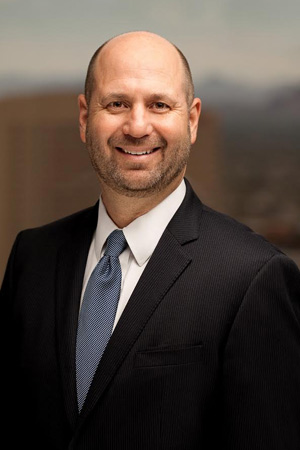 Medical Liability and Health Care Defense partner David Cohen served as an expert quote source in a recent Arizona Republic article, “More than 100 in long-term care facilities have now died of COVID-19. Here’s why it keeps happening.” The article, authored by investigative reporter Anne Ryman, discussed Arizona Gov. Ducey’s Good Samaritan executive order, signed April 9, 2020, and how it could impact nursing home patients.
Medical Liability and Health Care Defense partner David Cohen served as an expert quote source in a recent Arizona Republic article, “More than 100 in long-term care facilities have now died of COVID-19. Here’s why it keeps happening.” The article, authored by investigative reporter Anne Ryman, discussed Arizona Gov. Ducey’s Good Samaritan executive order, signed April 9, 2020, and how it could impact nursing home patients.
Excerpt from the article provided below.
…
Harder to sue nursing homes
A Good Samaritan executive order signed in April by Arizona Gov. Doug Ducey makes it harder to sue long-term care facilities during the COVID-19 outbreak.
Attorneys and health care experts who examined Ducey’s executive order at the request of The Arizona Republic said it sets a higher bar for civil lawsuits related to COVID-19 care, raising the bar from negligence to “gross negligence or reckless or willful misconduct.”
In other words, families who sue would have to prove nursing homes weren’t merely failing to use reasonable care. They would have to prove that administrators or employees knowingly and voluntarily disregarded reasonable care standards or were recklessly indifferent to the result or the rights and safety of others.
Brian Lee, executive director of Families For Better Care, a nonprofit group advocating for nursing home residents, said he understands concerns that nursing homes will be inundated with lawsuits as large numbers of residents die from COVID-19 complications. But, he said, families “have a constitutional right to have due process.”
But David Cohen, a Phoenix attorney who defends nursing homes against lawsuits and served as a consultant to the Arizona Health Care Association on the executive order, said while frivolous lawsuits will either not be filed or will be dismissed by a judge “the lawsuits with merit will still go forward.”
Even before Ducey’s executive order, Arizona families faced hurdles when trying to sue nursing homes.
Several years ago, a series of tort reforms created a more favorable legal environment for Arizona nursing homes. The statute of limitations for filing lawsuits has been lowered from seven to two years.
Proponents of the reform argued successfully to Arizona lawmakers that without the reforms, nursing homes faced a legal and financial crisis because of excessive lawsuit verdicts and settlements. They were paying higher insurance premiums to defend lawsuits, which was less money they could put toward patient care.
Legal and health-care experts say lawsuits against nursing homes related to COVID-19 are inevitable because of the large number of deaths. The Associated Press recently reported as many as 11,000 deaths have occurred at long-term care facilities in the U.S. since the coronavirus outbreak began.
…
David Cohen represents every type of healthcare provider — including nursing homes — in matters involving alleged medical malpractice, violations of the Adult Protective Services Act, wrongful death, and medical battery. He has successfully served as an expert witness for the Arizona nursing home industry in the passage of several tort reform bills. These bills have positively impacted all Arizona healthcare providers by reducing the statute of limitations from seven years to two years, normalizing punitive damages, and eliminating the attorneys’ fees provision in cases filed under the Adult Protective Services Act. Since 2008, David has been an active member of the Arizona Health Care Association’s Public Policy Committee.